10 Signs that your Dog is Stressed



See files for Dogs
There are some very clear signs that can tell you that your dog is suffering from stress. Do you know how to spot them?
If you think your best friend might be suffering from stress and anxiety, we suggest that you keep reading this AnimalWised article. We'll go over the 10 signs that your dog is stressed which, whether considered in isolation or in conjunction with others, can translate into a serious health problem that directly affects your dog's well-being and health.
Don't waste another minute! Find out if your dog is suffering from stress and learn how you can help it below.
- Hyperactivity
- Appearance of stereotypies
- Overreactions
- Drooling and licking
- Lack of attention
- Excessive panting
- Fight or flight
- Fur loss
- Muscle stiffness
- Behavioral changes
- How to help a stressed dog
1. Hyperactivity
It is very common for stressed dogs to behave go into hyperactivity. They can't keep calm and in the long run they may start nibbling furniture and any utensils they find in their path in order to release pent-up tension.
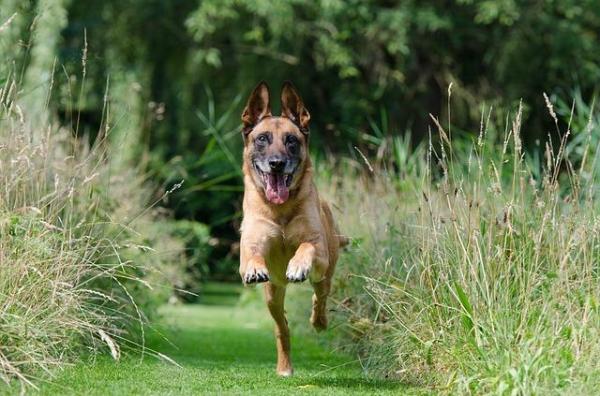
2. Appearance of stereotypies
Stereotypies are constant repetitive movements that the dog carries out for no obvious reason. There are many types of stereotypies: For example, there are dogs that bite their tails, those that hunt invisible animals, and others that bark non-stop. No matter their form, they are repetitive and incessant habits.

3. Overreactions
Maybe your dog already had a tendency to bark a fair amount, eat things off the floor, or reacted to other dogs when out on a walk. Regardless of what its habits were, you will now notice a more intense behavior. Reactions become intensified in stressed dogs.
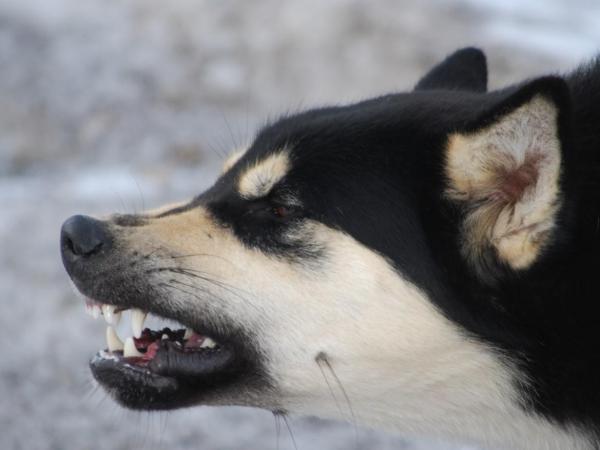
4. Drooling and licking
If you notice that your dog licks itself and salivates excessively, it is essential that you pay attention to make sure that it isn't a repetitive and constant habit. This is one of the less-known signs of stress in dogs that you need to bear in mind.

4. Lack of attention
Stressed dogs suffer from general nervousness that makes it difficult for them to concentrate, pay attention and follow our orders.
However, if your dog has always found it hard to stay concentrated - and not just now that it is stressed - you should assess it with your vet to see if it has an attention deficit disorder.
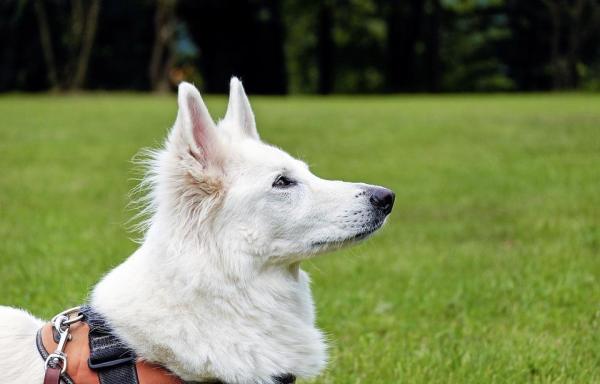
6. Excessive panting
Dogs pant to release body heat. If you notice your dog panting in situations where it should be calm, it is probably stressed and needs to relieve some of its tension. Panting can sometimes be accompanied with cries and whines.
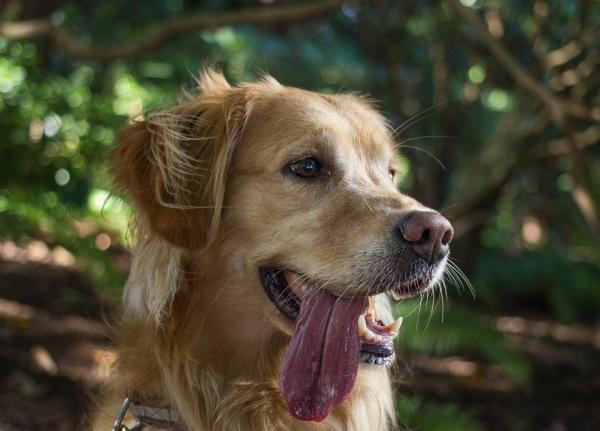
7. Fight or flight
A stressed dog usually feels very uncomfortable in unfamiliar situations or those in which it feels stressed. If, for example, your dog gets stressed when it crosses paths with other dogs, each of these encounters will make it overreact. It will either try to run away or react very negatively to this stimulus - whether a person, an environment, an object or a particular object.

8. Fur loss
Fur loss usually happens in cases of chronic stress in which the dog starts to feel physically affected by the condition it's suffering from. If notice that your dog is starting to lose fur out of sheer anxiety, you should take it to a vet as soon as possible.
Dogs can also lose fur by compulsively licking themselves (lick granuloma) or by directly tearing fur out with its teeth. Act as soon as possible - the dog is sending you emergency signals.

9. Muscle stiffness
You'll notice that your dog is tenser and stiffer than usual, especially in stressful situations. When waiting for something significant to happen, it is normal for the tail and limbs to be stiff.
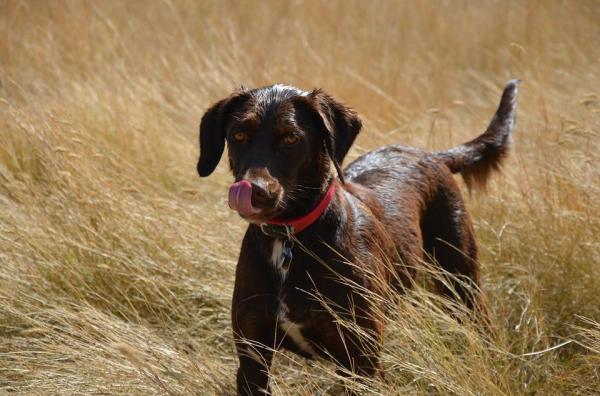
10. Behavioral changes
We finally reach the end of the list with a common problem: behavioral and personality changes. It's common for stressed dogs to start acting in ways that they have never done before, demonstrating aggression, shyness, depression, phobias, etc.
Instead of showing these behaviors in the face of particular situations, they start doing so generally. This is one of the biggest tell-tale signs that your dog is stressed.

How to help a stressed dog
If you think that your dog is very stressed, we recommend that you take it as soon as possible to an ethologist or dog trainer. Both professionals will help and guide you with advice and useful instructions for your particular case. They will also be able to help you pinpoint the root of your dog's stress.

If you want to read similar articles to 10 Signs that your Dog is Stressed, we recommend you visit our Behavioral problems category.
















